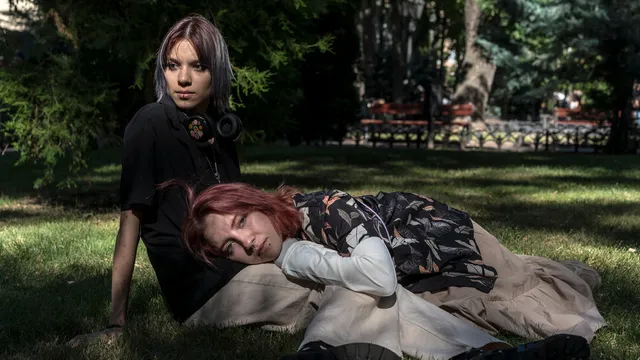
Reunion of Soul Mates in War-Torn Mariupol
2024-09-30 00:00- Sofia Malina and Polina Muzhychkova were separated during the Russian invasion of Ukraine in 2022.
- After reuniting in Crimea, they planned their escape from Russian-controlled territory for a year.
- Their successful journey to Ukraine in April 2024 illustrates the strength of their bond and the impact of war on personal lives.
Express your sentiment!
Insights
In 2022, the Russian invasion of Ukraine led to the separation of two young women, Sofia Malina and Polina Muzhychkova, who had just begun their love story in Mariupol. As Russian forces attacked, Sofia fled with her family to Germany, while Polina and her parents sought refuge in basements and later escaped to Crimea. Over the next two years, they endured the challenges of being apart, navigating a war-torn landscape and oppressive regimes. Sofia, a pro-Ukraine L.G.B.T.Q. activist, eventually returned to Crimea to reunite with Polina. Together, they planned their escape from the repressive environment of Russian-controlled territory. In April 2024, they successfully crossed into Ukraine, arriving in Sumy with their cat, Ozzy, after facing abuse from Russian police at the border. Their journey highlights the resilience of love amidst the horrors of war and the lengths individuals will go to be together.
Contexts
The ongoing war in Ukraine has significantly impacted the LGBTQ community, revealing both challenges and unexpected shifts in societal attitudes. As the conflict escalated, many LGBTQ Ukrainians took up arms alongside their fellow citizens, challenging long-held prejudices and fostering a sense of solidarity. The Kyiv International Institute of Sociology has noted a marked increase in support for LGBTQ individuals, particularly as they fight against the Russian invasion, which has been framed as a battle for freedom and equality. In stark contrast to Russia's oppressive stance on LGBTQ rights, Ukraine has seen a rise in acceptance, with many citizens recognizing the moral obligation to protect their LGBTQ compatriots. This shift is partly attributed to the perception that homophobia is intertwined with Russian aggression, as President Putin has used anti-LGBTQ rhetoric to bolster his narrative of 'traditional values.' As a result, support for same-sex civil partnerships has grown, reflecting a broader desire for inclusivity amidst the chaos of war. However, the war has also disrupted the operations of LGBTQ organizations in Ukraine, which have struggled to provide support and resources during this tumultuous time. With many groups forced to relocate or cease operations due to bombings and internal displacement, the community faces significant challenges in accessing essential services. The ongoing conflict has made it increasingly difficult for LGBTQ individuals to find safety and support, both within Ukraine and as refugees abroad. Despite these hardships, there are glimmers of hope. Recent legal developments, such as the approval of a bill for 'voluntary family unions,' signal a potential path toward greater recognition and rights for LGBTQ individuals in Ukraine. As the nation grapples with its identity in the face of war, the resilience of the LGBTQ community shines through, embodying the fight for freedom and equality that transcends borders.